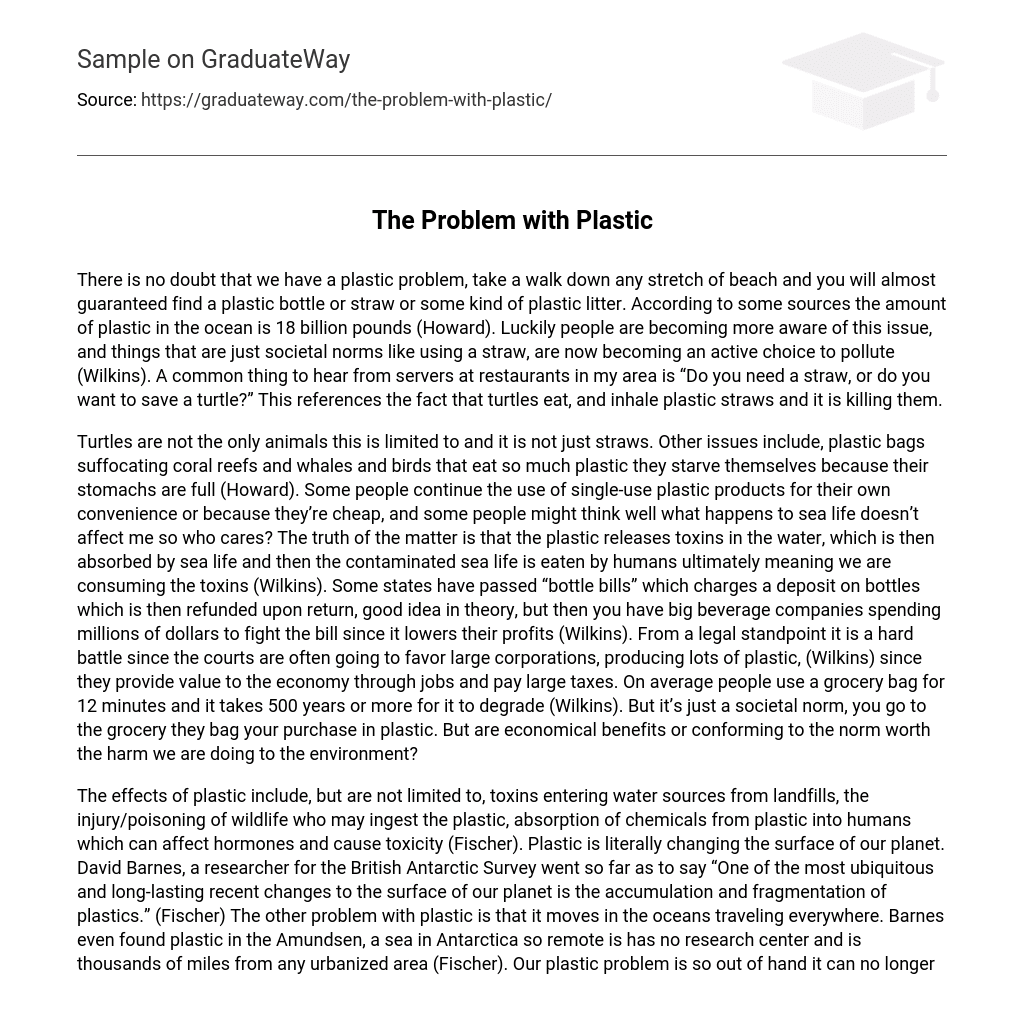There is no doubt that we have a plastic problem, take a walk down any stretch of beach and you will almost guaranteed find a plastic bottle or straw or some kind of plastic litter. According to some sources the amount of plastic in the ocean is 18 billion pounds (Howard). Luckily people are becoming more aware of this issue, and things that are just societal norms like using a straw, are now becoming an active choice to pollute (Wilkins). A common thing to hear from servers at restaurants in my area is “Do you need a straw, or do you want to save a turtle?” This references the fact that turtles eat, and inhale plastic straws and it is killing them.
Turtles are not the only animals this is limited to and it is not just straws. Other issues include, plastic bags suffocating coral reefs and whales and birds that eat so much plastic they starve themselves because their stomachs are full (Howard). Some people continue the use of single-use plastic products for their own convenience or because they’re cheap, and some people might think well what happens to sea life doesn’t affect me so who cares? The truth of the matter is that the plastic releases toxins in the water, which is then absorbed by sea life and then the contaminated sea life is eaten by humans ultimately meaning we are consuming the toxins (Wilkins). Some states have passed “bottle bills” which charges a deposit on bottles which is then refunded upon return, good idea in theory, but then you have big beverage companies spending millions of dollars to fight the bill since it lowers their profits (Wilkins). From a legal standpoint it is a hard battle since the courts are often going to favor large corporations, producing lots of plastic, (Wilkins) since they provide value to the economy through jobs and pay large taxes. On average people use a grocery bag for 12 minutes and it takes 500 years or more for it to degrade (Wilkins). But it’s just a societal norm, you go to the grocery they bag your purchase in plastic. But are economical benefits or conforming to the norm worth the harm we are doing to the environment?
The effects of plastic include, but are not limited to, toxins entering water sources from landfills, the injury/poisoning of wildlife who may ingest the plastic, absorption of chemicals from plastic into humans which can affect hormones and cause toxicity (Fischer). Plastic is literally changing the surface of our planet. David Barnes, a researcher for the British Antarctic Survey went so far as to say “One of the most ubiquitous and long-lasting recent changes to the surface of our planet is the accumulation and fragmentation of plastics.” (Fischer) The other problem with plastic is that it moves in the oceans traveling everywhere. Barnes even found plastic in the Amundsen, a sea in Antarctica so remote is has no research center and is thousands of miles from any urbanized area (Fischer). Our plastic problem is so out of hand it can no longer be solved by simply recycling as many believe (Wilkins) at this point our only option is to introduce policies which limit the production of single use plastic products.





